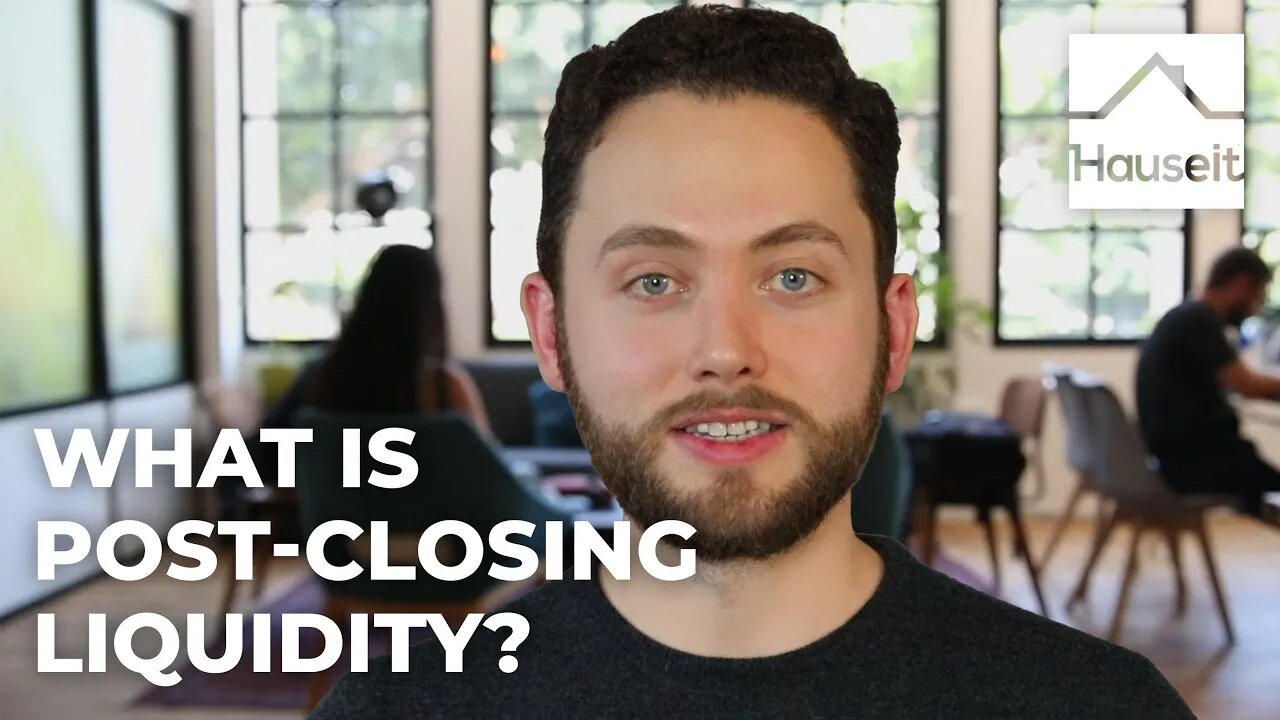Premium Only Content

What Is Post Closing Liquidity in NYC Real Estate?
Save 2% When Buying a Co-op in NYC: https://www.hauseit.com/hauseit-buyer-closing-credit-nyc/
Calculate Your Buyer Closing Costs: https://www.hauseit.com/closing-cost-calculator-for-buyer-nyc/
What is post-closing liquidity in New York City real estate? This is an interesting phrase which is commonly utilized when referring to co-op apartments. We will demystify this topic in the following video. I am Nick at Hauseit, we are New York City's largest For Sale by Owner, Buyer Agent Commission Rebate and Flat Fee MLS company in NYC, established in 2014. Visit us at https://www.hauseit.com to learn about ways to save money when buying and selling in New York City.
If you have any specific questions, leave us a comment below the video or send us an email team at team@hauseit.com. Now let's get started, post-closing liquidity what is it? Well post-closing liquidity is a measure used primarily by coops to estimate how much money in liquid assets you have left over after you close on a co-op apartment having paid your down payment and having taken care of your closing costs as well.
The purpose of post closing liquidity is to allow a co-op board to essentially gauge how risky you are as a buyer especially when it comes to the possibility of a job loss sometime in the future. If for example you have one year of post closing liquidity, it means that you have 12 months worth of your coops monthly maintenance payment and your mortgage payment in liquid assets to your name.
More specifically if your co-op maintenance is $2,000 and your mortgage is $4,000 that's $6,000 a month. Therefore one year of post closing liquidity is $6,000 times 12 which is $72,000. Most coops in New York City like prospective purchasers to have between one and two years of post closing liquidity. The reality is that if you're buying an expensive place in New York City it probably means you have a high paying job, and if you have a high paying job it means that it might be quite difficult for you to find a comparably high paying job if you suffer a job loss. That really is the fundamental principle driving the co-op board approval process.
When it comes to the analysis of post-closing liquidity, having two years of post closing liquidity for example would literally mean that you would not need to have a job for two years and you would still be able to completely meet all of your obligations when it comes to paying your costs maintenance and paying your mortgage. Why does this matter? Well it matters to the coop a great deal and that's because both in a co-op or a condo if one owner stops paying their maintenance it means that the other owners in the building have to make up the difference.
If you're in a small building say 10 apartments what happens when one person stops paying? What if that becomes 2? What if that becomes 3 and what if two of those three have legitimate issues in finding a new job? Post closing liquidity will allow a cushion for this potential co-op purchaser to figure out what they want to do in their life and continuing to pay their coops obligations. In the meantime perhaps this person will decide they need to sell. Selling in New York City for a coop can take six months or more so post closing liquidity mitigates the risk that other shareholders in a co-op will have to be stressed financially as a result of the delinquency of one or more of the members of the coop community.
How is post closing liquidity measured? what assets qualify as post closing liquidity? Well this is a very good topic and the reason is that many coops have different rules as to what they will be permitting you to consider as post closing liquidity. For example the strictest co-op might actually only permit cash and cash equivalents to be utilized.
These include straight cash such as in a checking account or a savings account certificate of deposit or a money market fund that is FDIC insured. These strict cops will not allow you to utilize any of your 401k or any of the other assets you might have to your name to make up this differential even if you have millions of dollars in your retirement account, a more reasonable co-op will allow you to count perhaps some or all of your 401k a SEP IRA other sort of less liquid assets that might be tax deferred or tax advantaged.
So if you're looking to buy a co-op and your numbers are close, ask your buyer's agent to check with the building to check with the listing agent, what assets will qualify as being part of post-closing liquidity and does the building require one year or two years?
Save 2% When Buying a Co-op in NYC: https://www.hauseit.com/hauseit-buyer-closing-credit-nyc/
Calculate Your Buyer Closing Costs: https://www.hauseit.com/closing-cost-calculator-for-buyer-nyc/
.
.
Hauseit LLC, Licensed Real Estate Broker
Tel: (888) 494-8258 | https://www.hauseit.com
_
#hauseit #hauseitnyc
-
 LIVE
LIVE
The Rubin Report
1 hour agoProtester Actually Thought She'd Outsmarted Tech CEO, Until He Asked This
2,339 watching -
 LIVE
LIVE
Dr. Eric Berg
4 days agoThe Dr. Berg Show LIVE - May 2, 2025
782 watching -
 1:01:06
1:01:06
VINCE
3 hours agoA Shocking Revelation About What's Coming Next | Episode 35 - 05/02/25
162K83 -
 16:58
16:58
SLS - Street League Skateboarding
7 days agoWorld's Best Skatepark, Amazing Spots, Nightlife, Food & More - Get Lost: Miami 🌴
15K1 -
 LIVE
LIVE
LFA TV
13 hours agoALL DAY LIVE STREAM - FRIDAY 5/2/25
4,868 watching -
 LIVE
LIVE
Caleb Hammer
1 hour agoTrust Fund Princess From Hell | Financial Audit
201 watching -
 DVR
DVR
Discover Crypto
1 hour ago $0.19 earned$84 Billion BITCOIN BUY (Altcoins Being BANNED!?)
3.77K4 -
 LIVE
LIVE
The Big Mig™
4 hours agoThey Party While You Suffer
2,174 watching -
 LIVE
LIVE
Bannons War Room
2 months agoWarRoom Live
16,287 watching -
 2:45:31
2:45:31
Matt Kohrs
9 hours agoUnemployment Report, China Update & Live Trading || The MK Show
66.7K5